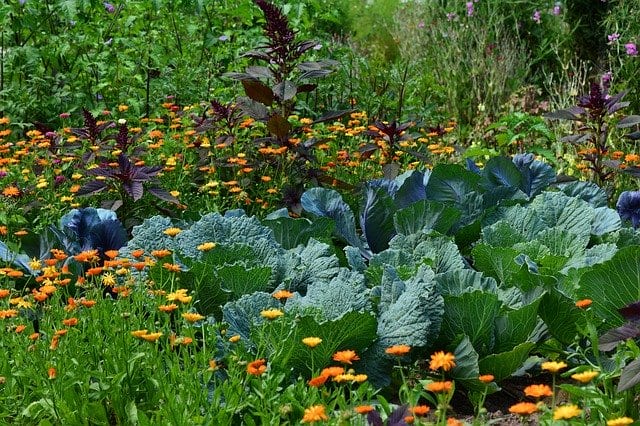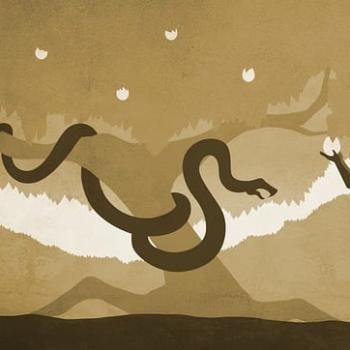
I should have been writing this week, but instead I was in the garden.
The cold weather finally left LaBelle in a burst of steamy mist; then it was warm. I went out with my shovel, to hack at the ground.
I had only dug a portion of what I meant to dig, back in early spring. I started on the rest Wednesday evening when it was dry, and then I finished it Thursday when it was raining. I didn’t want to wait any longer, because ground gets heavier to move the wetter it becomes, and the seedlings were getting too big for their pots. I didn’t want to lose any more seedlings.
A third of the yard went from dandelions and the remnants of lawn to slimy brown loam. I sprinkled the loam with an aperges of fertilizer made from chicken bones and chicken droppings; then I covered the loam with landscaping cloth and cardboard mulch. I cut holes in the cloth to plant my seedlings: Eight broccoli and six kale. Three peppers and a Japanese eggplant. The two limp squash seedlings that survived my clumsy attempt to grow them from seed, plus a choke-neck squash from Rural King. Five strawberries and one basil. Room for zucchini and cucumber that somebody else is bringing me later. Giant sunflowers. Two deep buckets of potato vines. I dug and I dug and I dug. I weeded around the onions and snap peas I’d already planted. I moved the planters of carrots. I turned over the compost.
According to Genesis, our father Adam was cursed, so that the soil would bring forth thorns and thistles. I wouldn’t mind thistles so much. Thistles have purple flowers. The plant I can’t stand is ordinary grass for an ordinary neighborhood lawn, because the roots are thick as basket weave. They’re hard to break up when I turn over the soil and smash them with my shovel. Ordinary lawn doesn’t leave me with anything to wash off and eat, like dandelions and violets do. Ordinary lawn doesn’t feed the bees like clover. It serves no purpose at all. God didn’t decree that everybody ought to live in houses surrounded by a useless plant. Sons of Adam did that. Once upon a time, a lawn was chosen as a status symbol, for the gentry to show they were so rich that they could leave a piece of their land with no crops growing on it. And now everyone is practically required to have a lawn. Everything you could grow in a yard to walk on, besides a lawn, is called a weed.
Here in LaBelle, people are especially particular about grass and weeds. They mow their lawns every couple of days in the spring and summer. A short lawn with nothing interesting on it marks that home’s owner as a “good” poor person, a responsible deserving one, and not the other kind. Our next door neighbor likes to growl at us that we’re “rats,” for not having short itchy monochromatic grass like hers.
If this house was my property and not a cheap rental, I would build a tall fence so she couldn’t see.
All God did was give us thistles with purple flowers. The punishments human beings measure out for one another are far worse. Human beings engineered lawns.
The first vegetable gardener was the first man born of woman, Cain, who murdered his brother out of envy. God demanded to know where Abel was, and Cain said “Am I my brother’s keeper?” and God didn’t answer Cain any more than He would answer His accusers before the Sanhedrin several millennia later. The answer was obvious, but God knew He wouldn’t be listened to. In every generation He sends us brothers and sisters that we are supposed to keep, yet we go on killing them. God pointed out to Cain that Abel’s blood was crying out for vengeance, and the blood of murdered brothers and sisters has been crying ever since. The whole world is blood-drenched and crying.
“Whoever sees me will kill me,” said Cain, the one who set the precedent of killing in the first place. God had a different idea. He put a mark on Cain so that the one who murdered a murderer would suffer a sevenfold vengeance. But we go on through all these centuries: murdering, then murdering the murderer and calling the second murder justice, reaping the sevenfold vengeance.
Sevenfold times sevenfold times sevenfold, the opposite of Christ’s command to forgive again and again through all time, we fail to be our brothers’ keeper, and the blood cries out.
Rosie leaned out the dining room window just then, eating an apple. This rental house didn’t come with screens in the windows, so we just open the sash and prop it up with a stick. She’s gotten accustomed to jumping out of the dining room window onto the back porch when it’s her turn to dump the kitchen compost, and sometimes just for fun.
“Mommy?” she interrupted my meditations. “You have no idea how dirty you are.”
“I think I do,” I said. I was muddy from the soles of my gardening shoes all the way up to my face. Some catechist I’d had as a small child mistakenly told me that a venial sin is a small blot on your soul, and too many venial sins can eventually grow together into one mortal sin. I had imagined my soul as a ghostly white sheet I wore over my skeleton but under my flesh, and sins were brown smudges that slowly grew up and colonized the clean sheet until it was a total loss. The sacrament of confession was God’s gracious act of bleaching the sheet. My body and my gardening clothes looked like that superstitious notion of a soul in mortal sin just then.
Rosie jumped out, deposited her apple core in the compost heap, and sat on the porch.
“You look like a mole that rolled in the mud and then fell in a puddle,” she remarked.
I am fat, and I squint, so I suppose I do look like a mole.
Rosie ran around the backyard, filling the bird feeders and providing color commentary on the garden. She’s most excited about the strawberries, and most concerned that I might make her taste basil. She’s desperate for me to allow her to drag the wading pool out to the patio and fill it up with the hose. We have to keep reminding her that the weather only seems hot by contrast; it’s too cool out yet to fill a pool. She’s been playing with her water guns and plastic fishing set in the bathtub, waiting in joyful hope for summer.
The neighbor who hates us popped in and out a few times, but mercifully said nothing.
All I’ve wanted is to get out of here, to a house I own on a bigger lot where I can grow an orchard and a grape alley, and raise bees and chickens. But at that moment, in the garden in the back of the detested rental house, under the disapproving eye of our neighbor, I was at peace.
I am trying to be my brother’s keeper. No doubt I’m doing it badly. But the reason I had the harebrained idea to expand this garden so unmanageably big was so that I could share some produce with the Baker-Street Irregulars. Their grandmother goes to the downtown food pantry weekly, just to keep them alive in that ridiculous little house on the corner of the street. I’m told that grocery prices are just going to keep going up, and the supply chain will continue to create shortages in the grocery stores. I can’t do anything about that, but I can do something about my backyard. I can cut the infernal grass with my shovel until it turns into mud, and I can make food grow out of the mud. Rosie and Michael and I can grow dandelions and clover to nourish the bees, we can run around filling feeders to nourish the birds, and we can make vegetables grow out of slimy mud to feed ourselves and the Baker Street Irregulars. We can go on doing this whether the earth brings forth thistles or grass or angry neighbors who call us names, and that will be a good life.
The last seedling went into the ground just as the rain kicked up. Rosie gathered up the plastic pots for the garbage. By the time I finished showering off all that dirt, I was ravenous. We ate lunch with the gusto that only comes after a good long stint of hard work in the garden, as the rain nourished the plants outside.
I was wrong. Cain was not the first gardener. Our Father in Heaven was the very first Gardener. He watered the paradise of Eden with four rivers and set Mankind inside of it to be happy, but we hid from Him. We have been hiding ever since.
Perhaps it was never so much an expulsion from Eden, as a running away because we were ashamed.
Some days gardening feels like finding my way back.
Image via Pixabay
Mary Pezzulo is the author of Meditations on the Way of the Cross.
Steel Magnificat operates almost entirely on tips. To tip the author, visit our donate page.













